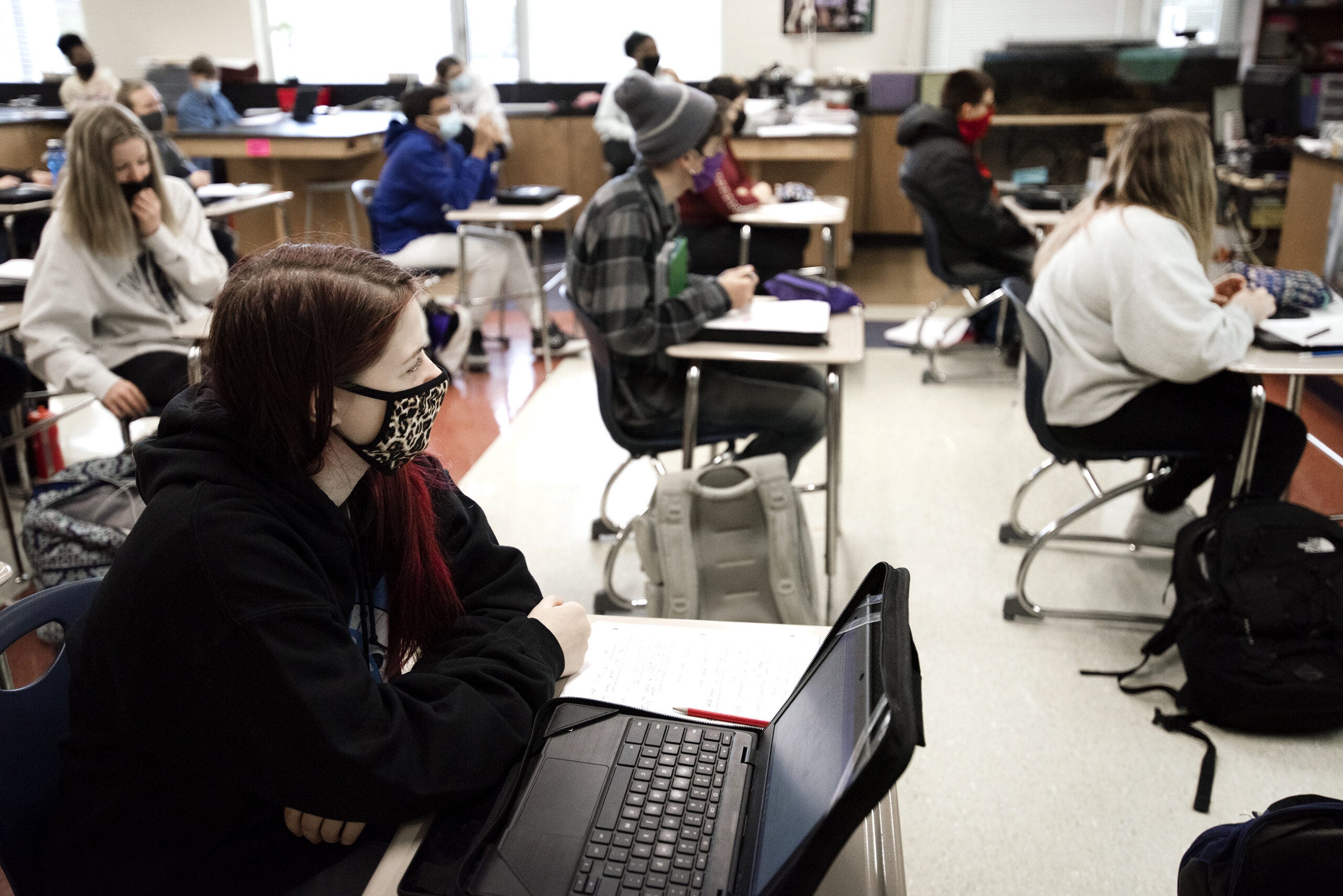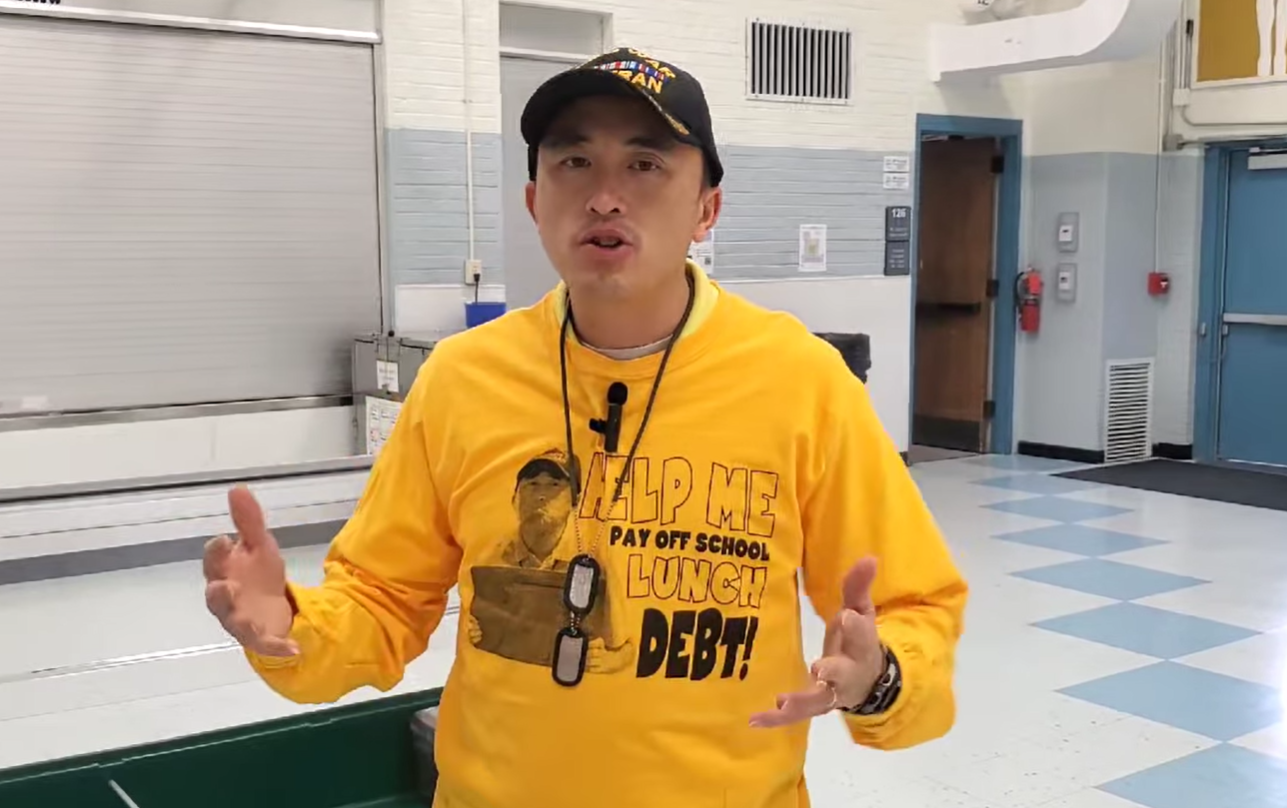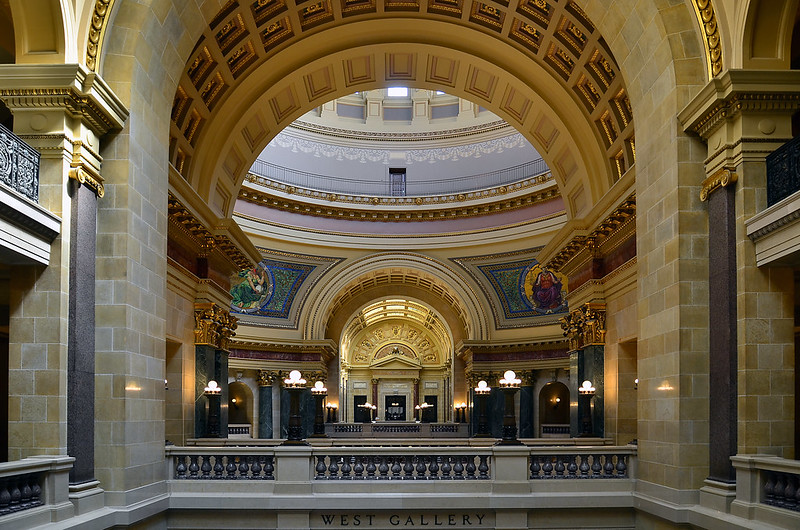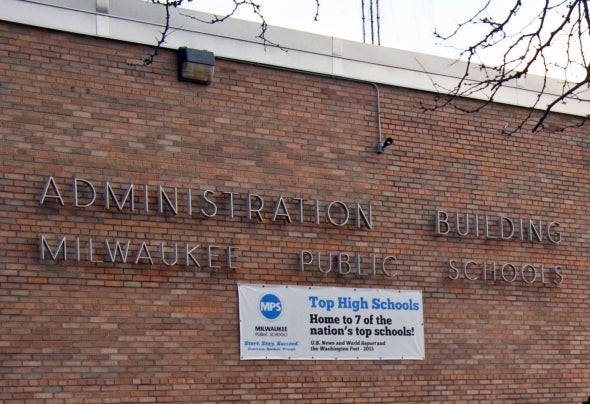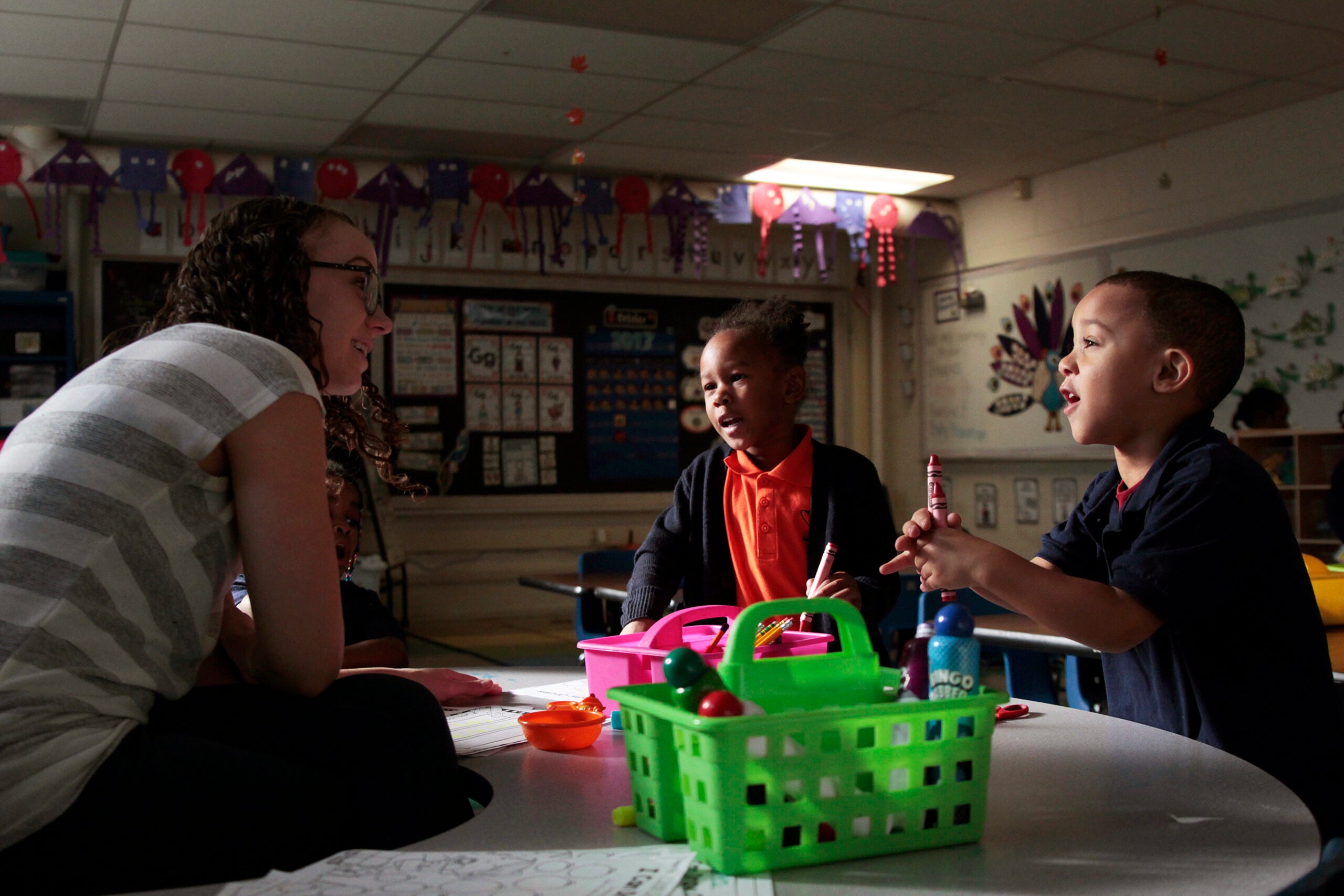Incoming state Superintendent of Public Instruction Jill Underly said the Joint Finance Committee’s decision to cut the education budget proposed by Gov. Tony Evers fails to meet the needs of Wisconsin students.
Evers proposed boosting funding for K-12 education by $1.6 billion over the next two years, but that has since been cut back to $128 million in state funding by the Legislature’s budget committee. Underly said it isn’t enough.
“(Allocating) $128 million doesn’t get the job done,” she said in an interview with Kate Archer Kent on WPR’s “The Morning Show,” pointing specifically to schools needing aid for mental health, special education reimbursement and teacher recruitment and retention.
Stay informed on the latest news
Sign up for WPR’s email newsletter.
“We have to look at getting the resources to the school so it can get to the kids,” she said. “And this budget puts money into property tax relief, which does not go into the classroom.”
Underly is referring to $2.3 billion in federal aid Wisconsin would qualify for under the two most recent congressional coronavirus packages. To meet federal requirements, Republicans opted to spend an additional $647 million on K-12 and higher education funding. But that funding would be used to fill a gap created by a proposed property tax cut by GOP lawmakers. It doesn’t increase or affect the $128 million that schools can spend.
Underly takes office July 5 after having won the election in April. Current state Superintendent Carolyn Stanford Taylor opted not to run for office after being appointed in 2019.
This interview has been edited for clarity and brevity.
Kate Archer Kent: Republicans have said a larger increase in state funding isn’t necessary because schools can tap into $2.3 billion in federal funding over the next four years. Do they have a point?
Jill Underly: No, I don’t think they do have a point. They’re taking the federal dollars that were intended to be on top of what the state obliges to public education, because that money was intended for pandemic relief.
They’re using that as an excuse to not invest in our state, not meet their obligation.
KAK: You wrote a column that the funding available now could be a once-in-a-generation game changer for our public schools. What is your vision?
JU: This is a huge opportunity. We have a surplus here right now in the state.
What we were asking for, and what the governor had proposed before we even knew we had the surplus, is using one fifth of that. Not much.
And when you think about the billions of dollars available and what we could use that for is: really look at our highest need schools with the highest need kids, looking at special education reimbursement, looking at the shortage of early childhood programs and child care, looking at where we could recruit more teachers, investing in our teachers.
I mean, all of that really translates to opportunities for kids.
KAK: Have you had conversations with Republican lawmakers about the budget? If so, what are they saying to you?
JU: I have had a couple conversations with different legislators. I have not actually received any response from anybody on the Joint Finance Committee.
And what I’m hearing is that they are not hearing from their constituents, which is hard for me to believe because a lot of people I know — superintendents, parents, advocates — they have been really trying to make themselves heard. I know people went to the budget hearings all over the state and there are so many comments about how we need to invest in our schools.
You look at the past year and a half since the (coronavirus) pandemic began and our staffs have been bending over backwards to make sure kids are fed, to make sure kids are still learning, making sure that we have technology in their hands, all these different things.
When I hear from superintendents, they just feel like it’s a big slap in the face.
KAK: We’ve seen school districts increasingly rely on referendums to pay for everything from new buildings to teacher raises. What changes would you like to see to how we fund schools?
JU: When we think about school referenda, it’s not our imagination. We have been going to referendum more frequently. There is a correlation between having to go to referendum and, of course, local tax increases.
We’re taxing ourselves locally because of the decline in state funding to our school districts. If the state kept up its promise of two thirds funding, which was under Gov. Tommy Thompson, we would see fewer local school districts have to raise their own taxes.
When the state does not invest, local communities have to decide for themselves if they want to invest. And of course, at the end of the day, not all referendums are successful and that further widens our gaps.
KAK: What will your top priorities be as you get into office?
JU: Oh gosh, there’s a lot of needs. But the biggest one is going to be making sure that we get a budget that closes the gaps for our kids, making sure that we have a plan that will help school districts help their kids and their families recover from this pandemic.
Wisconsin Public Radio, © Copyright 2024, Board of Regents of the University of Wisconsin System and Wisconsin Educational Communications Board.

